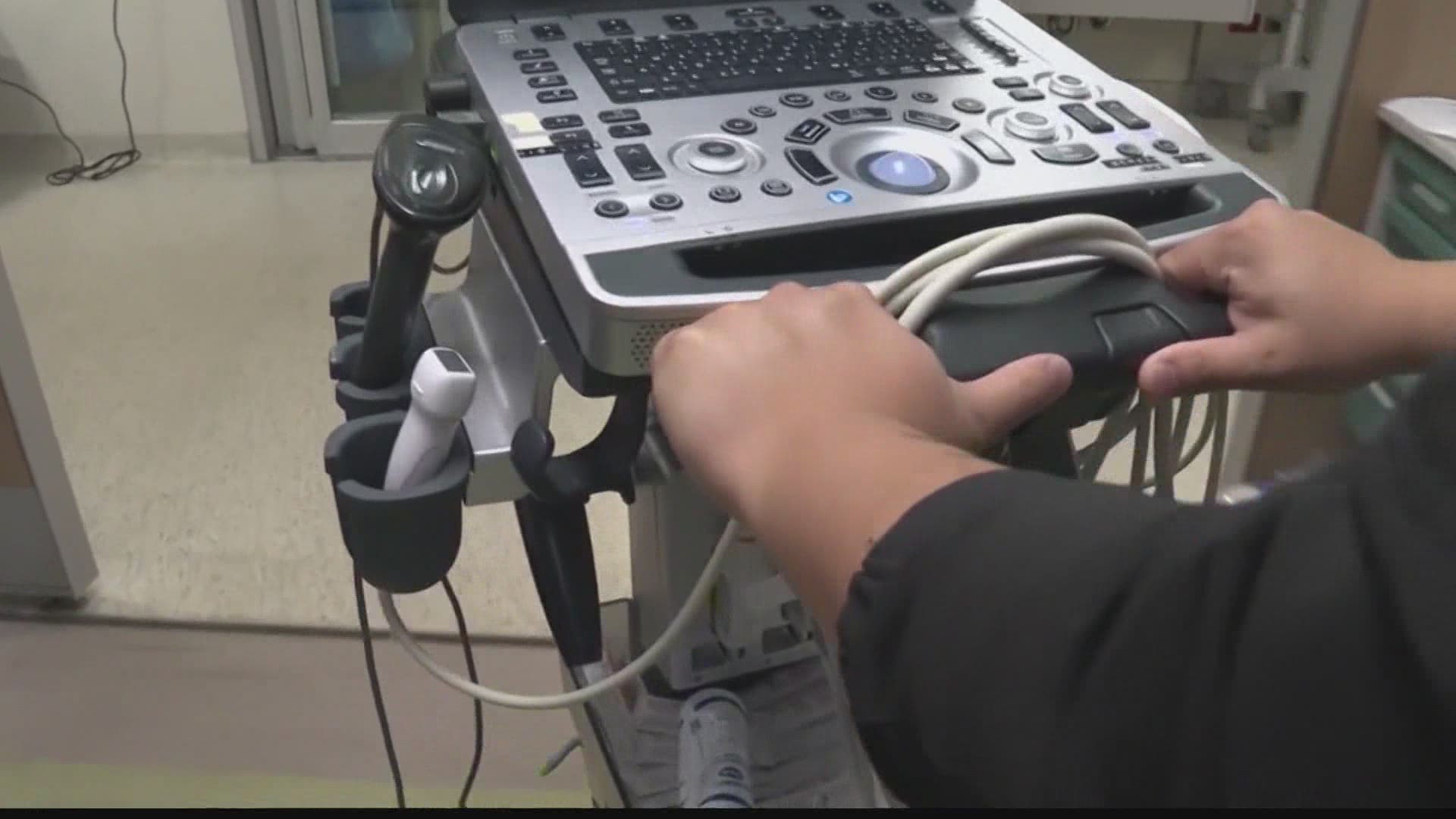ALABAMA, USA — Nurses at the University of Alabama at Birmingham Hospital are caring for more COVID-19 patients than ever before, and the patients they’re seeing are sicker, said the hospital’s chief nursing officer Tuesday when Alabama saw another record-breaking day of COVID-19 hospitalizations.
The work is taking a toll and the nurses are exhausted, explained Terri Poe, UAB’s chief nursing officer, speaking to reporters during a briefing Tuesday.
Poe said that patients at UAB “are more sick than they’ve ever been” and that the most challenging are the patients in the hospital’s intensive care beds, who require more care and now, without the aid of family members sitting bedside.
“Those patients are also alone,” Poe said. “Our nurses are required to be the family member and the communicator to their real families, and do a lot of extra work just to keep them updated.”
Many COVID-19 patients can use their cell phones or visit with family via webcam, but Poe said “still, these people are extremely alone.”
The rising numbers at UAB and across the state are worrisome. UAB on Tuesday had 140 hospitalized COVID-19 patients, and the number statewide reached a record 2,097. The average number of people in hospitals with COVID this week was at a record high of 1,903. That’s a 41 percent increase from two weeks ago. Huntsville Hospital was caring for a record 403 coronavirus patients on Tuesday, an 88 percent increase from just three weeks ago.
“All healthcare professionals are fatigued. We’re tired, and the nurses are tired. Here at UAB, where we’re seeing a lot of nurses who are out with either their quarantine themselves or a lot have COVID,” Poe said. “And we’re seeing a lot of community-acquired COVID.”
The latest White House Coronavirus Task Force State Report for Alabama, released Sunday, states that Alabama is seeing rising cases, hospitalizations and deaths, and the state’s positivity rate ranks 12th highest in the country. APR’s calculations put Alabama’s average positivity rate over the last week at 33 percent. Public health experts say it needs to be at or below 5 percent or cases are going undetected.
The report also notes that 91 percent of Alabama’s counties have moderate or high levels of community transmission, with 73 percent having high rates of transmission.
The Alabama Department of Public Health on Tuesday reported 4,436 new cases but noted that 1,511 were older test results, conducted from Nov. 30 to Dec. 5, which were just turned in to the department from two outside facilities on Monday.
That leaves 2,925 news cases recorded on Tuesday, which put the state’s 14-day average for new daily cases at a record high of 2,843.
“Despite the severity of this surge and the threat to the hospital systems, many state and local governments are not implementing the same mitigation policies that stemmed the tide of the summer surge; that must happen now,” the report reads.
“Mitigation efforts must increase, including the implementation of key state and local policies with an additional focus on uniform behavioral change including masking, physical distancing, hand hygiene, no indoor gatherings outside of immediate households, and aggressive testing to find the asymptomatic individuals responsible for the majority of infectious spread,” the report continues.
The report also states that current vaccine implementation “will not substantially reduce viral spread, hospitalizations, or fatalities” until the 100 million Americans with underlying health conditions can be fully immunized “which will take until the late spring.”
“Behavioral change and aggressive mitigation policies are the only widespread prevention tools that we have to address this winter surge,” according to the report.
In addition to requiring masks be worn at all times in public, the task force recommends increasing physical distancing through a significant reduction in capacity or by the closure of public and private indoor spaces “including restaurants and bars.”
Alabama Gov. Kay Ivey has recently said she has no plans to enact further restrictions on Alabama businesses, which are now operating largely without any restrictions, except for Ivey’s statewide mask order, which is set to expire Friday. Ivey could extend the mask order before then, which she’s done several times before.
The high number of deaths from COVID-19 is taking a toll on the nursing staff as well, Poe said, especially among nurses new to the field. The state’s COVID-19 death rate per 100,00 residents is up 107 percent from the previous week, according to the White House Task Force report.
“Nobody really prepares them for that, and they come into the organization and people are so sick. It has a toll,” Poe said.
Typically before the pandemic, three ICU patients would be assigned to two nurses at UAB Hospital. Right now, it's one to one.
UAB Hospital officials say they are doing what they can to prevent burn out from impacting the care patients are getting. They are bringing in retired health care workers, travelling nurses and even nursing students to help alleviate the work load.
Poe said, "What we don't want to see are nurses who are so exhausted that they fail to wash their hands or fail those things that we know are important."
While a COVID-19 vaccine is a light at the end of the tunnel, health care leaders say it will be a while until we see the end of this.

